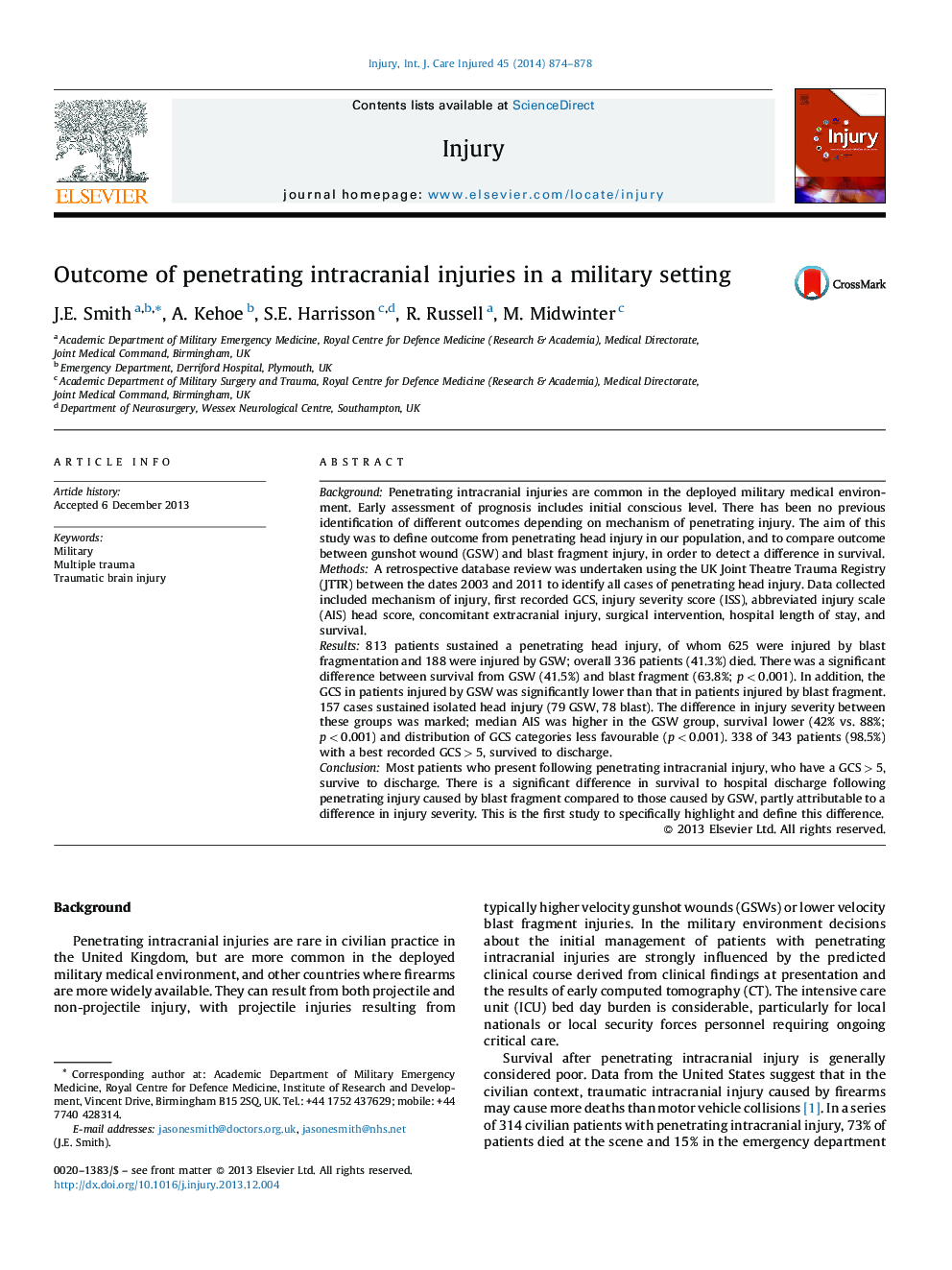| کد مقاله | کد نشریه | سال انتشار | مقاله انگلیسی | نسخه تمام متن |
|---|---|---|---|---|
| 3239622 | 1206014 | 2014 | 5 صفحه PDF | دانلود رایگان |
BackgroundPenetrating intracranial injuries are common in the deployed military medical environment. Early assessment of prognosis includes initial conscious level. There has been no previous identification of different outcomes depending on mechanism of penetrating injury. The aim of this study was to define outcome from penetrating head injury in our population, and to compare outcome between gunshot wound (GSW) and blast fragment injury, in order to detect a difference in survival.MethodsA retrospective database review was undertaken using the UK Joint Theatre Trauma Registry (JTTR) between the dates 2003 and 2011 to identify all cases of penetrating head injury. Data collected included mechanism of injury, first recorded GCS, injury severity score (ISS), abbreviated injury scale (AIS) head score, concomitant extracranial injury, surgical intervention, hospital length of stay, and survival.Results813 patients sustained a penetrating head injury, of whom 625 were injured by blast fragmentation and 188 were injured by GSW; overall 336 patients (41.3%) died. There was a significant difference between survival from GSW (41.5%) and blast fragment (63.8%; p < 0.001). In addition, the GCS in patients injured by GSW was significantly lower than that in patients injured by blast fragment. 157 cases sustained isolated head injury (79 GSW, 78 blast). The difference in injury severity between these groups was marked; median AIS was higher in the GSW group, survival lower (42% vs. 88%; p < 0.001) and distribution of GCS categories less favourable (p < 0.001). 338 of 343 patients (98.5%) with a best recorded GCS > 5, survived to discharge.ConclusionMost patients who present following penetrating intracranial injury, who have a GCS > 5, survive to discharge. There is a significant difference in survival to hospital discharge following penetrating injury caused by blast fragment compared to those caused by GSW, partly attributable to a difference in injury severity. This is the first study to specifically highlight and define this difference.
Journal: Injury - Volume 45, Issue 5, May 2014, Pages 874–878
